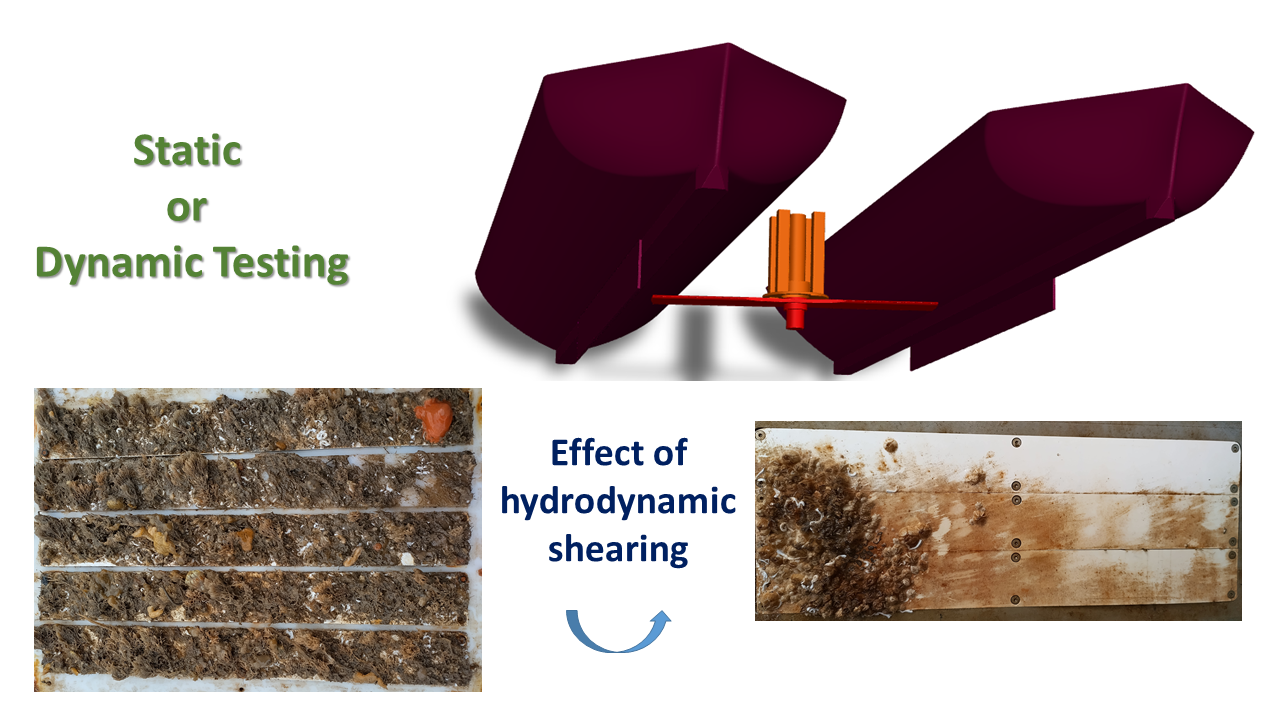Last updated: 28 September 2023
The NEMMO project has recently completed a study on developing a biofouling behavioural model, which captures the dynamic growth of biofouling organisms as observed on different material solutions.
Between December 2022 and August 2023, a variety of anti-fouling material solutions were tested under realistic conditions for their fouling and ageing performance in Dublin, led by Dublin City University. During the test period, the data from this 8.5-month marine test campaign was used to test the feasibility of modelling biofouling growth. Four coatings and a biomimetic surface texture were chosen for the dynamic testing. Samples tested were immersed on the four flat surfaces of a vertical axis, two-blade impeller and exposed to periodic hydrodynamic shear stress cycles.
The new behavioural biofouling model proposed relies on a sigmoid function to capture the three growth phases: the latency, exponential and stationary phases. The data presented in the report confirms its suitability. Key functional parameters are shown to provide an effective way to quantify growth and allow for an easier comparison of the impact of materials on biofouling.
The test campaign has concluded that the best-performing solution is a solvent based on polyurethane coating, which incorporates SiO2 nanoparticles.
